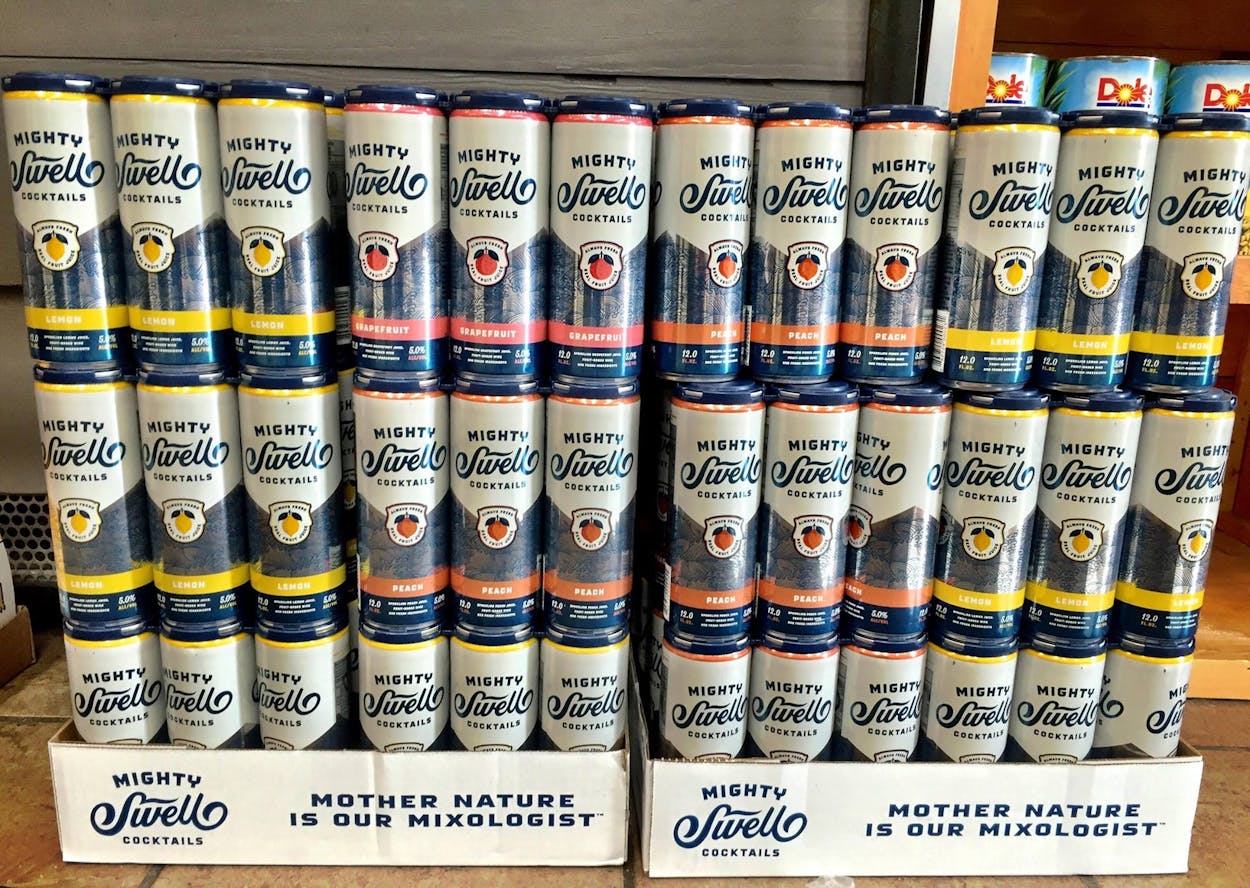Drinkers of a certain age might recall the golden era of the wine cooler. During the mid- to- late-eighties, wine coolers enjoyed a boom in commercial success, with 122 million gallons of the stuff sold in 1987. There were numerous ad campaigns that still stick out in our collective memory, like the famous “Thank you for support” spots by Bartles & Jaymes, Bruce Willis singing about Seagrams, and television stars shilling for Sun Country in a polar bear suit (yes, that really happened).
These were the beginnings of the days of wanting convenience in a glass, and the idea of popping the top off of a bottle and pouring a refreshing pre-mixed cocktail over some ice had a lot of appeal. But as the new decade began, sales of wine coolers were on the decline, dipping nearly 17 percent in 1990 from the previous year. Then, in January 1991, the fizzy bubbles really popped out for the wine cooler business. That’s when Congress applied a hefty excise tax on wine. As noted by Tyler Colman on his site, Dr. Vino:
Congress raised the federal excise tax on wine to $1.07 a gallon, effective January 1, 1991. Doesn’t sound like a lot but the previous rate was $0.17/gallon, so it quintupled. That put the economic kibash on coolers…
After this giant tax increase, producers simply couldn’t afford to use bulk wine as an ingredient in wine coolers, effectively killing the market. Of course, it didn’t stop the “cooler” market. People still wanted the convenience of the instant cocktail. So savvy beverage producers simply replaced wine with malt, and brands like Zima and Smirnoff Ice began muscling in on the beer-alternatives market (these drinks are sometimes called “malternatives”).
But it’s not as though people lost their taste for the wine cooler. The wine spritzer continues to be a popular homemade concoction, one that gets especially popular during the summer months when people crave a fizzy, low-alcohol cocktail. And a few enterprising Texans are looking to fill the hole in the grocery store shelves for a convenient, canned cocktail beverage.
Enter Mighty Swell Cocktails. Clayton Christopher, who was the founder and CEO of Sweet Leaf Tea and chairman and co-founder of Deep Eddy Vodka, joined forces with Daniel Barnes, the founder of Treaty Oak Brewing and Distilling Company and Jason Bronstad, a former executive from Mike’s Hard Lemonade, to create an actual wine cooler that can be bought at the store. (The three joined investment industry professional, Sean Cusack, who originally devised the idea.)
“The stars really aligned for this project,” says Christopher who had been toying with a similar idea when Cusak and Barnes approached him with this concept. “It was a smart, well-thought out idea that filled what I think is a big gap in the market place for a ready-to-drink beverage.”
Okay, so what makes this different than the other beer alternatives in the market? Well, first, this product starts with actual wine made by a small Floridian producer who makes the wine from orange peels that is fermented and then distilled into a low alcoholic wine. But, more important, Mighty Swell focuses on using all-natural ingredients to make its grapefruit, lemon, and peach flavors.
“We’ve lived through the wine cooler era, and our challenge will be showing consumers how we’re different than that. Once you taste Mighty Swell drinks, you realize we’re nowhere near that category,” says Christopher. “What we’re making has never been done.”
When the “malternatives” cropped up in the market, few of those flavored beverages ever tasted, well, all that great. I mean, did you really think that the exotic fruit-flavored cooler concoctions or lime and margarita-inspired beers taste like anything except artificial flavoring in a bottle? Mighty Swell has approached the category with a twenty-first century mentality, using all-natural ingredients like real fruit juice and pure cane sugar—no high-fructose corn syrup, artificial flavors, sodium benzoate, or food dyes.
“There’s no doubt there’s a massive shift taking place in consumer preferences for beverages. There’s a $100 billion leaky beer bucket that’s losing over 4% annually and all those consumers are shifting from large production beers to craft beer, ciders, and beverages with more flavor,” Christopher says. “But many of those flavors are artificial. People see that and are turned off. Transparency has become important. We’ve created something that fits a new mainstream aspiration for all natural.”
Christopher speaks from experience. His time with both Sweet Leaf and Deep Eddy taught him a thing or two about disrupting the current or existing beverage space. With Deep Eddy in particular he was able to tap into the existing market of flavored vodkas and completely revolutionize the category using premium, all-natural ingredients. With annual growth of more than 200-percent from its launch in 2010 to its corporate acquisition by Heaven Hill Distilleries in 2015, Deep Eddy is almost an anomaly.
“Using quality, natural ingredients was an ‘aha moment’ with Deep Eddy,” says Christopher. “And it’s a lot more expensive to produce, but it’s something that resonates with consumers in a big way.”
Mighty Swell Cocktails are now widely available in six-packs at retailers throughout Texas. The company hopes to begin broader regional distribution later this year.






